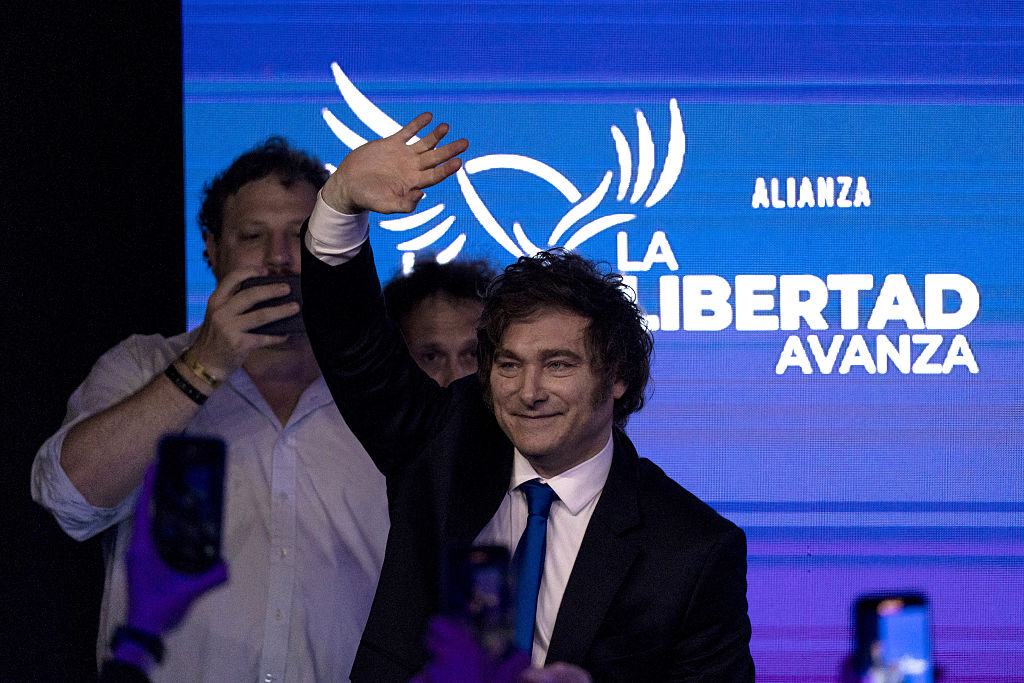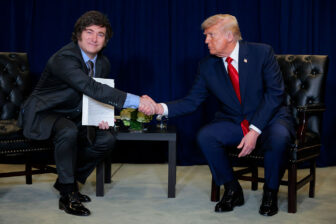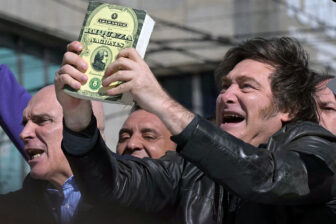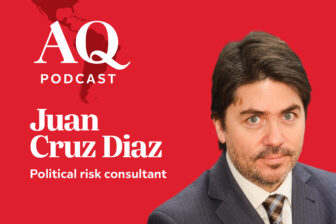In the October 26 midterm elections, Argentine President Javier Milei’s La Libertad Avanza (LLA) party exceeded expectations, winning more than 40% of votes nationally. The closely-watched vote followed a setback for LLA in the September 7 Buenos Aires provincial elections, as well as statements from President Donald Trump, who had conditioned a U.S. economic lifeline for Argentina on yesterday’s results.
LLA was the most-voted party nationwide and won in 15 of the country’s 24 electoral districts. “Today has clearly been a historic day for Argentina,” stated Milei, whose victory strengthens his government’s ability to push through his libertarian economic reforms.
AQ asked analysts to share their reactions and perspectives.

Alejandro Catterberg
Political analyst, public opinion specialist and co-founder and president of Poliarquía Consultores
With a decisive victory of more than 40% of votes, President Milei has shown that his administration continues to enjoy popular support and that he is gaining momentum for a new round of reforms. The president’s speech last night signaled that the government has recognized that without building agreements, it lacks the institutional strength to push reforms forward. Milei appeared moderate, was not aggressive with the press, and called for building a new consensus with governors who have representation in Congress.
Milei’s defeat in Buenos Aires province in September had put the Partido Justicialista‘s (PJ) internal disputes on pause—disputes that had been brewing amid a criticized, convicted and imprisoned former President Cristina Fernández de Kirchner, who was losing influence. Yesterday’s poor results for the PJ nationwide quickly reignited those internal conflicts and exposed something that had been evident for a while: Peronism is at its weakest point in terms of institutional power in a long time.
The ruling party reached its own one-third threshold in Congress, putting it in a much stronger position than before. Still, it will need to strike deals with other political actors (PRO, governors, and other allies) to build majorities that can move reforms forward.
Many governors suffered setbacks that will be felt at the local level, after their attempt to form a coalition representing them fell apart. Nevertheless, they remain popular figures in their provinces, with local political power, competitive prospects for reelection, and control over a key segment of the national Congress that the government needs to secure majorities and advance reforms.
It was a successful night for Milei: He gained popular backing, exceeded expectations, and delivered a moderate speech emphasizing the need to seek agreements. He has a clear path to build majorities in Congress if he restores dialogue with actors who—especially after this victory—have renewed incentives to return to the negotiating table. If Milei learns from his mistakes and corrects them, his administration will have a strong chance to consolidate its position in the months and years ahead.

Pilar Tavella
Director, Head of Macro and Sovereign Strategy at Balanz
La Libertad Avanza (LLA) earned a sweeping result last night in Argentina’s midterm elections. To take the measure of the win, LLA won in 15 of 24 electoral districts, an increase from the eight provinces it won in the 2023 legislative elections and the 10 it won in the 2023 presidential election. LLA won even in the province of Buenos Aires, the stronghold of kirchnerismo where it lost local elections by a landslide just last month. Yesterday’s result is even more noteworthy considering the economic adjustment that took place in the first two years of President Milei’s mandate.
Argentina can reap the benefits of its stabilization efforts and its newly strengthened political footing by taking two bold, crucial steps. First, the Milei government should implement a political strategy that seeks agreements with the friendlier opposition parties to pass reforms. Second, it should allow further flexibilization of the foreign exchange framework to allow for faster reserve accumulation.
On the political front, the road ahead looks promising. Unlike the final two years of Juntos por el Cambio’s mandate, LLA now has the benefit of having implemented most required adjustments, which means it can now navigate the second half of its mandate on a stronger footing. Coalition-building will remain crucial to strengthening the fiscal picture and passing reforms. President Milei’s speech on Sunday night clearly pointed in this direction. He described the moderate opposition as rational and pro-reform, marking a shift from his previous confrontational posture toward them.
On the economic front, the path forward appears much smoother now than it did when Milei took office. The primary balance is running a surplus, the monetary overhang has been dramatically reduced, and the FX pass-through to inflation is lower. This means that the preconditions for a more flexible exchange rate framework are significantly stronger than when the Milei administration started its work, and also than when Mauricio Macri government floated in end-2015. Finally, support from the U.S. Treasury offers an important buffer to prevent the Argentine peso from overshooting if more flexibility is embraced. It will also enhance the sovereign spreads compression already taking place on the back of the positive election result.
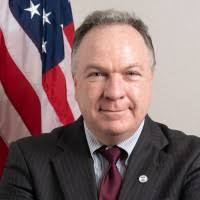
Steven E. Hendrix
Chief executive of Hendrix LLC and senior research fellow at DePaul University College of Law
Argentina’s midterm elections have delivered President Javier Milei a decisive political boost—and a sharper test of power. His La Libertad Avanza (LLA) coalition far outperformed expectations, giving Milei veto power but not an outright majority. Turnout—just 67.9%—was the lowest in any national election since Argentina’s return to democracy in 1983, underscoring both fatigue and faltering hope.
The results strengthen Milei’s hand but leave him dependent on fragile coalitions. He will still need to negotiate with centrist and provincial blocs to advance his sweeping economic reforms. For a president who campaigned against “the caste”—Argentina’s political establishment—this is an uneasy reality: power within reach, yet still constrained by the institutions Milei has scorned. The vote suggests that, for now, many Argentines are willing to endure short-term pain for a promise of longer-term stability. His critics call that misplaced faith while his supporters call it courage.
This election also carried unusual international weight. Just days before the vote, Washington finalized a currency-stabilization deal worth at least $20 billion to support the peso—a lifeline that effectively tied U.S. credibility to Milei’s economic experiment. The Trump administration views Argentina as a counterweight to China’s expanding influence in Latin America and a test case for market-driven recovery. Milei’s victory will be read in Washington as vindication of that bet—but it also raises expectations. Should reforms stall or unrest grow, the U.S. may find itself financially and politically exposed.
I first traveled to Argentina in the 1990s, when President Carlos Menem’s liberalization drive promised a similar break from the past. Then, as now, Buenos Aires hummed with optimism and unease. Menem’s experiment ended in crisis after a decade of overreach and debt. The echoes are unmistakable: Can Milei succeed where Menem faltered, reforming fast enough to restore confidence without precipitating collapse?
Globally, the vote will be read as a referendum on libertarian governance. Milei remains the world’s only self-described “anarcho-capitalist” leader, with his “chainsaw plan” an emblem of radical fiscal austerity. This strong midterm result signals that disruptive economics can retain democratic legitimacy—at least for now. Yet the low turnout and persistent protests reveal the limits of patience in a society still scarred by recurring crises.
Milei’s challenge now is to translate momentum into coalition. His next 18 months will determine whether Argentina’s libertarian revolution deepens through democratic compromise or fractures under the weight of its speed.

Benjamin Gedan
Senior fellow and director of the Latin America Program at the Stimson Center
In some ways, the strong performance in the midterms by the party of President Trump’s “favorite president” says little about President Trump’s mojo in Latin America. After all, Argentina’s leader, Javier Milei, is a libertarian whose economic agenda diverges dramatically from that of his U.S. counterpart. Milei favors free trade and budget surpluses, and regards government-backed industrial policy as a highway to socialism.
Nevertheless, the bond between the White House and the Casa Rosada made this election a barometer of Trump’s regional influence. Milei visited Mar-a-Lago last November, sat on stage at Trump’s second inauguration, and headlined the Conservative Political Action Conference in February. In return, Trump hosted him at the White House earlier this month, describing him as “MAGA all the way” as he endorsed La Libertad Avanza and promised a $20 billion bailout to stop a snowballing financial crisis. It was Milei’s 13th trip to the United States as president.
In that regard, Milei’s midterm success is a feather in Trump’s cap. His interventions in Canada and Brazil backfired, but in Argentina, Trump played a decisive role—and this time, he got the result he wanted.
Though Trump’s support for Milei is largely motivated by their ideological twinning, the ruling party’s success was also a foreign policy victory for the U.S. Argentina’s pro-market reforms reflect a strategy the U.S. has long advocated in Latin America, under Democratic and Republican presidents. Since the days of the Washington Consensus, Washington has pressed the region’s leaders to rein in spending, curtail the role of the state in the economy, and stay out of the business of the central bank, a playbook Milei is largely following. Moreover, the lavish U.S. support for Milei shows there is an upside for leaders that side with Washington rather than steer toward the safe harbor of nonalignment in a multipolar world.


